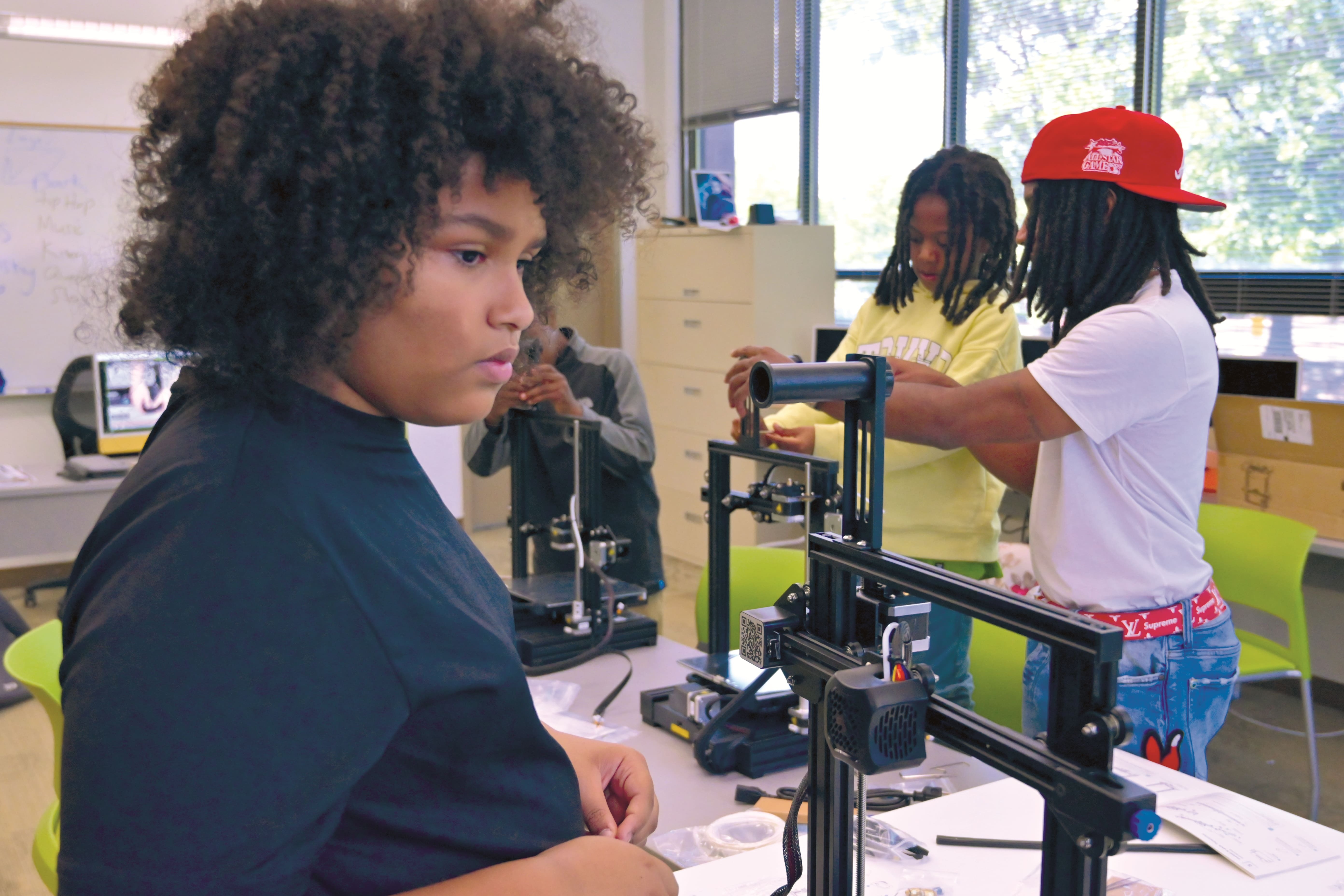Authoring a New Story for New Haven
Job training and youth programs are creating hope and community at ConnCAT.

Erik Clemons believes in the impact of stories. The stories told about a community, he says, often reflect how a community feels about itself. Since 2011, the Connecticut Center for Arts and Technology (ConnCAT), where Clemons is CEO, has been helping author a new and empowering story and vision for New Haven neighborhoods that have suffered from poverty and neglect.
“ConnCAT has helped a community of people – many who probably stopped dreaming – to hope and dream again,” Clemons says.
Since its founding, ConnCAT has trained nearly 1,000 adults for jobs in in-demand fields and served thousands of young people in its summer and afterschool programming. The vision for its operations is modeled on the Manchester Bidwell Corporation in Pittsburg, created by the community leader Bill Strickland. The Community Foundation provided an initial grant for its feasibility study, and a subsequent $1 million grant over four years to help build ConnCAT’s New Haven-based facility. Partnering with Yale-New Haven Hospital, ConnCAT began with two training programs: medical bill and coding, and phlebotomy.
“We started small and served fifteen students in each class,” Clemons recalls. Programs have since expanded to include a Culinary Arts Academy and BioLaunch, a training program for entry-level positions to support the Elm City’s rapidly growing bioscience sector. All ConnCAT training programs are free and range from four to seven months in duration for participants to earn state or industry-related certification credentials.
Job skills are only part of the ConnCAT program. “Through our career pathways program, we help [students] with job-seeking skills including a personality assessment, resume-building and interview skills,” Clemons says. He estimates that, to date, more than 70 percent of program graduates have been placed in jobs.

But it’s more than adult learners who are building better futures at ConnCAT. Through a partnership with New Haven Public Schools, more than 2,000 middle and high school students annually come through ConnCAT’S doors to take advantage of its art studio, where they can learn photography, drawing, painting, dance and digital technology.
“We use arts as a vehicle for academic achievement and building a sense of community,” Clemons says.
The physical space is as important to Clemons as the programming. “We want ConnCAT to be a place of beauty and dignity where people [are inspired] to dream beyond their current circumstance,” Clemons says. By design, the facility features natural lights, bright colors, wall art and music playing. “We believe that our surroundings can influence performance.”
For its next chapter, ConnCAT will become part of ConnCAT Place on Dixwell, a $180 million, eight-acre redevelopment project led by its development arm, Connecticut Community Outreach Revitalization Program (ConnCORP). The project plans to transform urban blight into a vibrant community beacon featuring a grocery store, 184 units of housing, a performing arts center, a food hall, retail space, an office building, child care center, and ConnCAT’s new headquarters.
For Clemons, it’s all part of writing a new story for New Haven, especially in traditionally marginalized neighborhoods. “ConnCAT is helping people in our community to re-author their stories, thereby recasting their lives,” Clemons said. “I am most proud of that.”
What inspires you?
Creating a charitable fund makes a difference now and forever.
